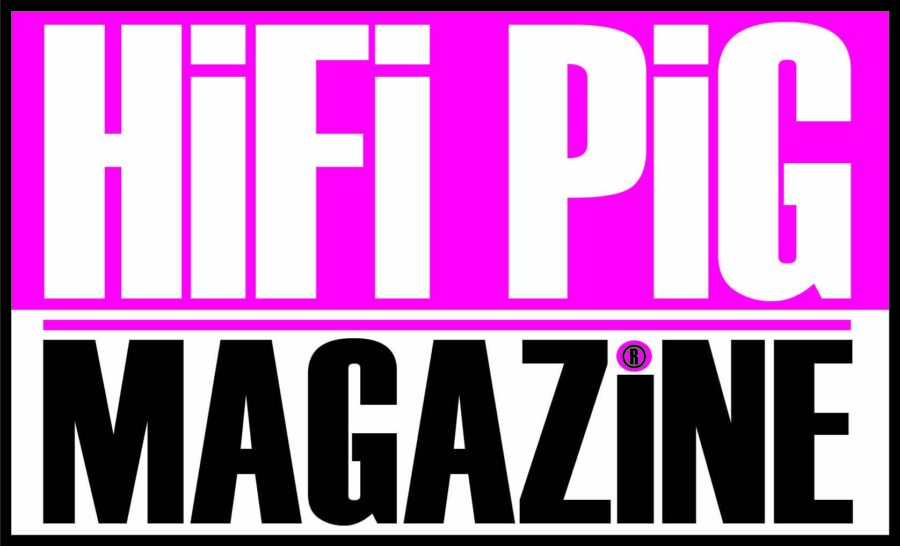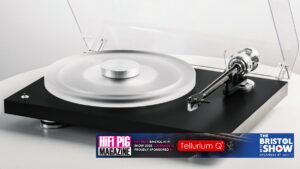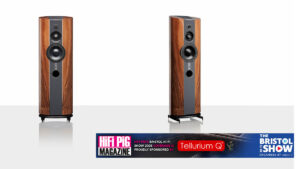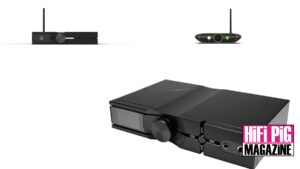So You want To run A Record Label – Here’s How
So You want to launch your own record label but don’t have the funds, don’t have the know how and frankly haven’t a clue where to start? Hifi Pig has a chat with Serial Bowl Records, a label collective based in Sunderland in the North East of England to get the low down.
 HP. You describe Serial Bowl Records as a “Collective” what is a collective and why did you choose this particular model?
HP. You describe Serial Bowl Records as a “Collective” what is a collective and why did you choose this particular model?
SBR. A collective is an organization that is managed without hierarchy. This means that every member has equal decision-making power. Some decisions may be delegated to individual members, but all decisions are made collectively.
A lot of the collective have been involved in various projects, have been or are currently in bands and have differing knowledge/know how on how a collective should be run. We organised a meeting, put ideas forward and took it on from there. We think that it’s important that everyone’s views and ideas should be shared
HP. How is the label financed?
SBR. We currently have 16 members in the collective and to get the label up and running all have contributed financially, so everything we do is self-financed. It’s a “not for profit” organisation and any monies made goes straight back into Serial Bowl. We raise funds via both record and merchandise sales, and via gigs which we promote at The Museum Vaults pub in Sunderland. (Great pub – Ed’)
HP. How do you find new bands?
SBR. Via the radio, social media, word of mouth and going to gigs. We also get the odd demo sent too. If someone in the collective likes something we will have a listen and discuss. Our budget isn’t massive so we have to be a little careful as to what we release. If money was no object, we would release loads of records, but as with most things finance dictates.
HP. How is the recording financed and how are any profits split?
SBR. The recordings so far have been financed by the bands themselves. But that’s not to say that we wouldn’t pay for a bands recording costs in the future. I think bands realise that a lot of labels haven’t got a lot of money (neither have many bands to be fair) and don’t mind paying for their own recording costs. Gone are the days when bands used to sell thousands of units and most labels press small runs of 100-1000 and if they manage to sell them all they have done well. We initially pressed up 350 Natterers E.Ps which sold out so had more pressed up. After pressing costs etc. any profit is split 50/50 with the bands or we may give them a percentage of the records to sell themselves, they would then keep the money from sales as payment.
HP. Do you give artists full artistic freedom to record what they like or does the collective have an input?
SBR. Yes we give all bands full artistic freedom; that will include what tracks are to be released, design of artwork and what colour vinyl the records are pressed in. It’s important that the label and bands work together and not have a “us and them “relationship.
HP. Who owns the recordings?
SBR. The bands own the recordings (unless we were to pay for a recording). Publishing would be down to the bands to sort out; we may look at setting up a publishing company further down the line
HP. You press up physical records rather than just digital downloads, why is this and how many of each record do you have pressed?
SBR. We press up 300-350 for each release. If a band becomes more popular then obviously we would press more (which was the case with the Natterers last E.P. Toxic Care). We are not opposed to digital downloads, people can download some of the releases via our Bandcamp page, our upcoming compilation album will also be available digitally.
HP. How are the records distributed?
SBR. At the moment we sell via mail order only, the reason behind this is a label makes very little profit on a release so selling via mail order cuts out distribution and shop costs. We have however discussed distribution and going forward we’ll be looking to get records into shops (you still can’t beat going into a record shop and physically buying a record). So if it means losing a little bit of money on certain releases then so be it.
HP. How do you fix the price of each record?
SBR. We look at overall costs i.e. recording (if any), pressing, publicity and take it from there. We try to keep costs as low as possible (don’t know how Crass Records sold their releases as cheap as they did all those years ago). Some labels will take the piss and sell albums for £20, of course we try and make a little profit but we think it has to be a fair price
HP. Do you have a specific style of music on Serial Bowl Records?
SBR. We all have diverse musical tastes, but all love punk/post-punk and hardcore so our releases have/will be predominantly “punk”.
HP. Sunderland, where you are based, has a healthy punk scene and heritage. How important is this and are there any particular venues that are intrinsic to your operation?
SBR. Good question. Sunderland has had a strong punk heritage going right back to 1977 and it’s evolved over the years to where it’s at right now. Some of the people who were around in 1977/78 are still in bands now and still come to gigs and support the younger bands. That’s what is great about punk, anyone can do it and it was never about “us and them”. To most people, myself included it’s important to work collectively and be part of a community and that’s what we have in Sunderland. It’s only a small scene but everyone knows each other and on the whole get along fine. We have always had venues in Sunderland and I was involved in running a venue called The Bunker, which is still going strong now, not as a gig venue, but as music collective, they oversee some great projects for young people from across the city. Sunderland has a few venues but the two main ones are Pop Recs and Serial Bowls very own The Museum Vaults. We have had bands play there from as far a field as New York, Chicago , Milan, Paris and Gothenburg. We are very lucky as we have a very loyal crowd who fully support what we do.
HP. You have a collection of merchandise that fans can buy, how important is this in raising funds for future projects.
SBR. Yes we have t-shirts and hoodies (all realistically priced) which helps fund the release of records; we have a very distinctive logo, which we promote on our merch’. Labels like Dischord who also have a distinctive logo and have sold thousands, we live in hope.
HP. What bands do you currently have signed to Serial Bowl?
SBR. We haven’t got bands “signed “ as such, we base hings around trust. If we release something and both ourselves and a band are happy then we will work together again. We have releases planned for Jimmy Floyd Hasselbaind, Pre-Birds, Ballpeen, Jaded Eyes and Modern Enemy with other stuff in the pipeline.
HP. where do you see Serial Bowl Records in five years’ time?
SBR. Hopefully still going!! It would be great to run the label full time, maybe in 5 years who knows.
HP. If an individual or group of people reading this are inspired by your story to explore launching their own record label, what advice would you give them ?
SBR. Go for it, yes it can be hard work and sometimes frustrating, but if you are passionate about something, and you have the right mind-set then why not. Look its not about making money, believe me that is very unlikely to happen, its about doing something you enjoy and believe in. If you are working as a collective utilise each others strengths, we have people in Serial Bowl who are great at design, can print t-shits can do sound at our gigs, who are good at organising, give everyone role and let everyone have a voice.
Facebook Page
Bandcamp
Buy Records and Merchandise
Article originally appeared in Hifi Pig Magazine which you can download for free here.





























































